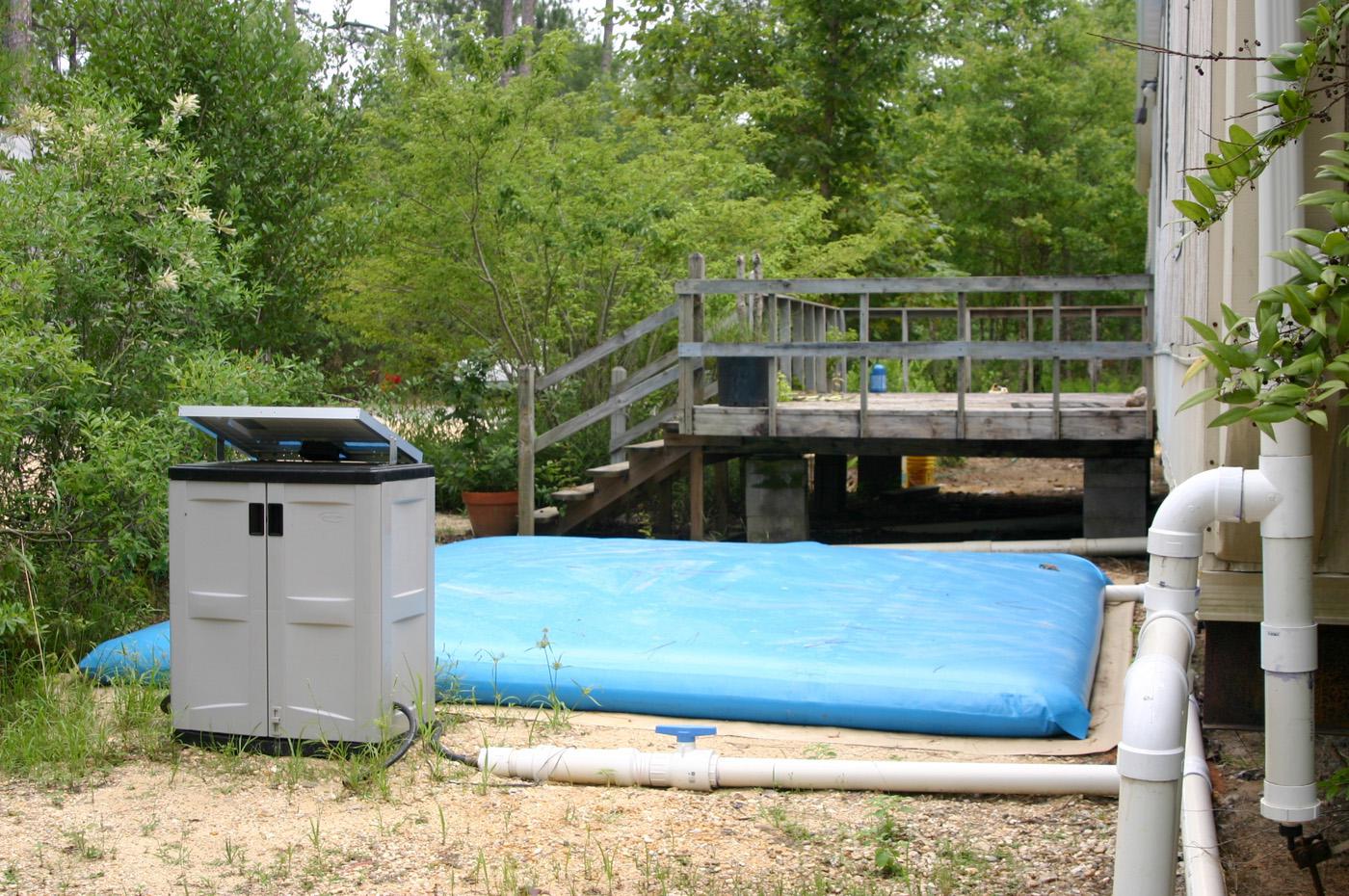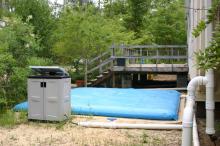Information Possibly Outdated
The information presented on this page was originally released on June 16, 2011. It may not be outdated, but please search our site for more current information. If you plan to quote or reference this information in a publication, please check with the Extension specialist or author before proceeding.
Crosby Arboretum gets free rainwater system
PICAYUNE – A local manufacturer of fuel and water storage tanks is testing a rainwater irrigation system at Mississippi State University’s Crosby Arboretum.
Senior Curator Patricia Drackett said the irrigation system offers environmental and financial benefits to this unique facility located in Picayune.
“We are interested in offering water conservation solutions to the local community,” she said. “The system has a solar controller and holds about 3,000 gallons of run-off from the roof of a portable building near the greenhouse.”
Using rainwater for irrigation is valuable because it does not contain chlorine or other elements that can generally be found in municipal or other ground-water systems. Not only is the rainwater better for plants and trees, it also conserves existing water resources for other uses.
Avon Engineered Fabrications, a subsidiary of Avon Rubber, specializes in manufacturing flexible structures from coated fabrics and other materials for commercial and military uses. Recently AEF has been working on the development of a practical, low-cost, eco-friendly rainwater harvesting system to capture, store and dispense water during restricted water or drought conditions.
“Once a prototype system was developed, we needed to test it and gather additional information on design aspects and performance,” said Robert Homes, business development manager for AEF. “We are fortunate to have available to us locally the award-winning Crosby Arboretum.”
AEF donated all of the equipment required for a prototype installation with the capability to collect up to 1,000 gallons of rainwater for every inch of rainfall, depending on the total square footage of watershed available.
“One of the unique aspects of the Avon Engineered prototype is that it is not dependent upon connection to a local power supply,” Homes said. “We have incorporated debris removal and overfill protection, a solar energy collection system, battery supply, a 12-volt water pump, and watering timers, along with commercial connections, to allow for the unattended operation of a sprinkler system.”
The arboretum will test the supplementary irrigation system’s effectiveness, monitor the system’s use and provide a monthly report to AEF. Water from the storage tank is used to irrigate the Children’s Garden, which includes planting beds, a butterfly garden and a section dedicated in memory of a local 4-H’er. The runoff keeps the plants well watered at no extra cost.
“We believe using the natural collection of rainwater and the renewable energy of the sun to distribute the harvested rainwater is a step toward achieving a truly independent ‘green’ application and will allow for the system to be installed in remote situations where local facilities are not readily accessible,” Homes said.






